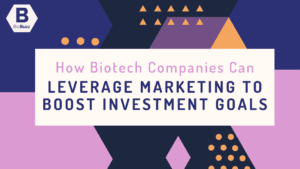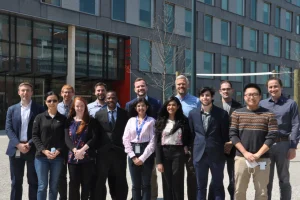
Genentech, American Diabetes Association Partner on Equitable Eye Access
By Alex Keown
March 24, 2023
The American Diabetes Association, headquartered in Arlington County, VA, and Genentech launched a pilot program in Alabama to better understand and improve screenings and equitable treatment opportunities among minority diabetes patients whose disease is complicated by vision loss.
Diabetes is the leading cause of vision loss in people ages 18-64 years old, particularly among older adults and minority patient populations. There are multiple eye diseases that can affect diabetes patients, including diabetic retinopathy, macular edema, cataracts and glaucoma, according to the Centers for Disease Control and Prevention. Each of these diseases can lead to the loss of vision but early intervention and treatment can make a difference. And that’s what the ADA and Genentech hope to do through their partnership.
Because of the threat of vision loss, Charles Henderson, chief executive officer of ADA said regular eye exams are a must for people living with eye diseases. However, health inequities in the U.S. have led to many people being unable to receive the care they need, he said.
Under the umbrella of the ADA’s Health Equity Now program, the advocacy organization and South San Francisco-based Genentech will launch a fact-finding pilot program in Birmingham, Alabama to gain a better understanding of barriers to eye health in under-resourced communities. Additionally, the partnership will provide resources to directly address those barriers.
“Our shared goal is to empower people with diabetes to effectively manage their eye health by identifying and removing barriers to eye care that can save their vision. Diabetic eye disease is a leading cause of vision impairment – but it is preventable. Early detection and treatment of diabetic eye disease can reduce severe vision loss by 94%,” Henderson told BioBuzz. “Unfortunately, there are disparities in how different populations receive diabetes-related eye care and treatment. That’s why programs like this are so important, to help collectively address systemic inequities. Through this community-based program made possible by Genentech, we will identify the barriers to eye health, address those barriers, and support community awareness through screenings and education.”
The ADA partnered with Genentech because of that company’s dedication to health equity and its commitment to patients with diabetes-related eye disease, Henderson said. Genentech is a leader in the development of therapeutics diabetic-related eye diseases.
The company’s products include Vabysmo, an intra-ocular injection for the treatment of neovascular (wet) age-related macular degeneration and diabetic macular edema (DME), as well as Lucentis, which has been approved for the treatment of diabetic retinopathy in people with DME. Last year, Genentech initiated the ELEVATUM program to assess Vabysmo in DME patients who self-identify as Black/African American, Hispanic/Latino American, or Native American/Alaska Native/Native Hawaiian or other Pacific Islander, and have never had any anti-VEGF treatment.
Genentech CEO Alexander Hardy noted that health disparities are a deep-rooted and systemic challenge. He said the partnership with the ADA builds on Genentech’s commitment to “address inequities by advancing inclusive research in ophthalmology, expanding diversity in the field, and improving equitable access to care.”
Birmingham was selected as the first city for the program because more than half-a-million people in Alabama have been diagnosed with diabetes, Henderson said. Of those, about 68% of the patients are African American. There is significant opportunity to make a positive impact on those patients, he said.
“After identifying what barriers exist, we will be working to remove barriers with local health system partners. Screening and education for awareness will be key components to addressing the overall needs of the community,” Henderson said. “The ADA and Genentech will use learnings from the Birmingham pilot to inform future work together. We hope that this model can be expanded to additional communities across the country in the future.”







